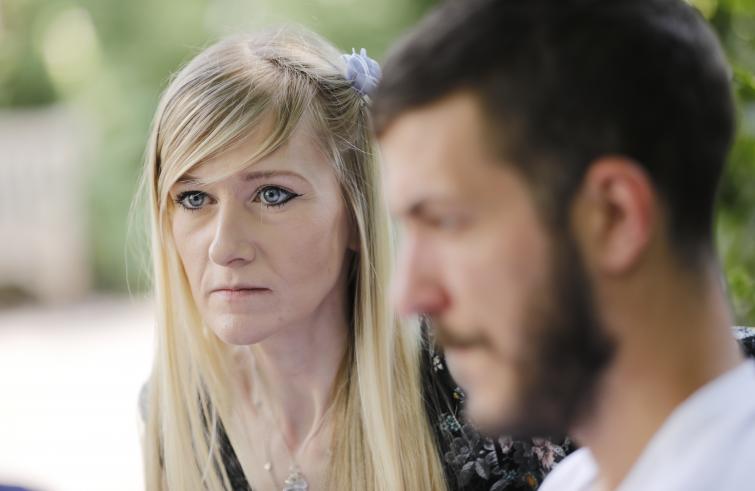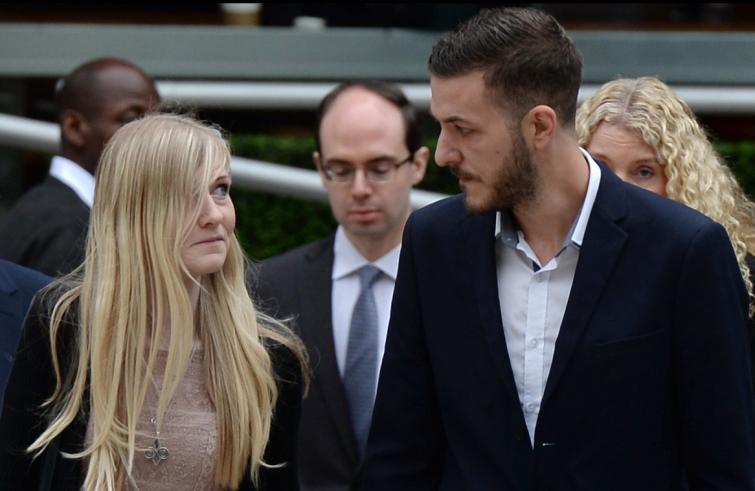Reflection
The Lord’s hands are holding and lulling the child, infusing into him the certainty of safety, of being embraced as a precious sign that has stirred human consciousness and directed it towards God. Charlie’s silence is eloquent, for it shows that although the end of each and every one of us is certain, it’s not the mere dissolution into nothing. It’s an encounter

Innocent pain, the suffering of the infant stands before us, calling us into question. Is the mere human impotence of reason the answer? An endless pessimism or depression? The place of unprecedented suffering can trigger another feeling, which doesn’t wipe out the agony and does not intend to accept it, for it would end up clashing against a wall. The other form of suffering enjoys the intrinsic pretence of seeing through eyes filled with tears but shining with hope. What’s at stake is the deepeest meaning of life, which young Charlie could not appreciate in full. A smiling infant that is blooming for the big adventure. Now his adventure is no longer an ad ventura, a future, it suffers a sudden halt and, in our opinion, with unfair chronological timing: can a life be interrupted before blossoming? When an existence has flourished before the Creator? When in history’s mysterious mosaic a tile is full and it shines; when the mission entrusted to every existing creature has reached its completion.
Charlie has reached this finishing line. He can enter life, eternal life, for every being that was bestowed with life while impressed with death, has also been given eternity.
Is this a crazy statement? It is servitude to theological ideology? Or is it instead the Gospel, the Good News given to humanity? The message of our Shepherd was clear:
“Pope Francis is praying for Charlie and his parents and feels especially close to them at this time of immense suffering. The Holy Father asks that we join in prayer that they may find God’s consolation and love.”
The suffering is undeniable. It cannot be measured. All questions come to the fore like cutting blades.

To say we are praying is not a way to slip away, to sugar coat on an extremely sad reality that is hard to put up with. To say we are praying means turning our gaze to the Lord of life who is suffering together with us for everything that is marking Charlie’s tender flesh and his parents. He weeps with us. But His Hands are holding and lulling the infant, infusing into him the certainty of safety, of being embraced as a precious sign that has stirred human consciousness and directed it towards God.
Charlie’s silence is eloquent in that it shows us that although the end of each and every one of us is certain, it’s not the mere dissolution into nothing. It’s an encounter.
To measure the years chronologically is still too easy. There is also a qualitative measurement that knows how to grasp the Presence of the Creator who is not absent, and who knows that opening ourselves to Him means that the fountainhead that we call consolation will be open for us. The wound of sorrow is imbued with light, it is not closed by magic. It’s the light of the transfiguration, just as luminous and transfigured are the plagues of our Risen Lord.
If we gather in prayer from all the furthermost corners of our planet and we turn to Him who won over death, together we will be irradiating His Light on our wound, which, although it will remain a wound pervaded by suffering, will be soothed and projected onto the path that knows how the reach the Garden where the Lord strolls.

The parents entrust their infant to the angels in the Skies, he won’t be alone, he won’t be sad, he will be welcomed by all those who preceded us in the history of humanking. We don’t know how to describe Charlie’s body, and it’s pointless to imagine it. We know he will be imbued with light, the same light of the Risen Lord. What will Charlie do? This was Charles Péguy’s insight:
“Such is my paradise, says God. My Paradise is all that is simplest. Nothing is as unpretentious as my paradise. Aram sub ipsam, at the foot of the very altar. These simple children play with their palm and their martyrs’ crowns. That’s what goes on in my Paradise. These simple children play with their palms and their martyrs’ crowns. That’s what happens in my Paradise. Whatever can they play at with palms and martyrs’ crowns? I believe they play at hoops, God says, and perhaps at quoits (at least I believe so, because don’t think that they ever ask my permission) And the ever-green palm serves them, it seems, as a hoop-stick.”